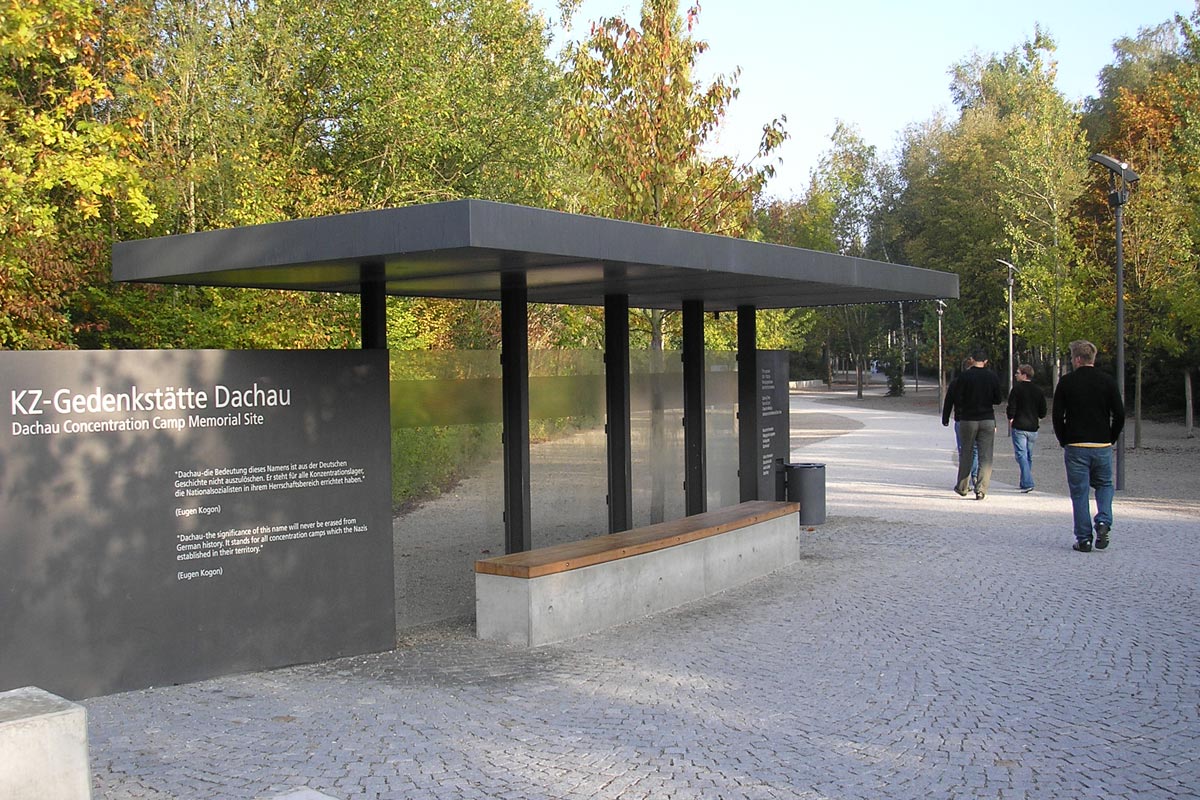Follower, Bystander, Feigning Ignorance…?
In a country marked by persecution and repression, where perpetrators and followers, bystanders and those feigning ignorance were predominant, moral courage appeared to have dwindled away. And yet, there was courage: people who stood up for democracy and the rights of others; rescuers and helpers who committed themselves to the persecuted; prisoners who preserved humanity and humanism under extreme conditions.
Thematic guided tours and study days on “Moral Courage Then – Moral Courage Now” present examples of such people, trace their motives and fields of action and raise questions on what courage means to us now – and how we can implement it today.
Contents
Scope of Action - Do we really have to?
The persecution and murder of millions was not a natural disaster befalling Germany “from the outside” nor was it an order „from above“. At numerous stops during the tour of the memorial site you will come to the realisation that people often had choices and the opportunity to make their own decisions.
- There were not a few, who stood up for democracy and human rights before and even during the “Third Reich”. However, they not only faced the National Socialists, but they were also abandoned by masses of indifferent and passive people.
- There were concentration camp prisoners, who risked their own lives to smuggle information outside of the camp, provided medication to their fellow inmates or saved them from deadly transports.
- There were SS-Men, who recognised and used their room for manoeuvre in favour of prisoners.
- There were state prosecutors, who in 1933 uncovered murders in the Dachau Concentration Camp, started an investigation in the year after the Nazis seized power and at least effected the replacement of the camp commander.
- Even during the war years there were tens of thousands in Germany, who supported Jews in hiding and thereby made it possible for many of them to survive.
How can moral courage be promoted? How can it be stifled?
Addressing this scope of possibilities, questions will automatically impose themselves during the guided tour.
- Did the people who were morally courageous during the “Third Reich” possess special characteristics? Is moral courage a character trait that one either possesses or one does not?
- Why do we often overlook our room for manoeuvre? Why do we ignore our own responsibility in certain situations?
- Under which conditions do we interfere, when others are threatened? When do we stand up for the rights and interests of our fellow human beings? When do we rise up for our own rights?
Reflexion Period
After the guided tour participants may wish to pose questions within a study group in a study room at the memorial site, utilising film, discussions and reflection to consolidate understanding. Depending on interest and time, this can include:
- Exercises, which help you to stand up for your own opinion, to perceive different forms of violence, to help you empathise with victims etc.
- Through short films, for instance on public emergency or threat situations, which can reveal the possibilities and limits of oneself intervening
- Through research from the field of social psychology on peer pressure, obedience, deindividuation, the diffusion of responsibility etc., which can draw attention to the “enemies” of moral courage within ourselves
- Through group discussion and reflexion: Group discussions and reflexions, at the end of which the question regarding one’s own social courage in everyday situations may emerge: in school, at work, among friends, in public
Organisational matters
Participants and preparation
- Thematic tours and study days about “Moral Courage Then – Moral Courage Now” are suitable for teenagers as of 15 years of age and for adults. No previous knowledge of the topic is required.
- If you are interested: You can find recommended reading here, including the topic “Concentration Camp SS and other perpetrators”.
- Your tour guide will readily advise you regarding the possibilities of preparing and follow up on the tour.
Your Tour Guide
During your stay at the memorial site, you will be attended to by a Dachauer Forum tour guide, who, in addition to the general training for memorial site tour guides, has educated him-/herself further for several months historically and methodologically in a workshop on Nazi perpetrators.
Thematic tour: Duration and costs
- A thematic tour takes approximately four hours. After the tour and the documentary film, there is about an hour for the final reflexion period.
- Costs per group with up to 30 participants: 110 €.
- By the way: Most participants of a thematic tour and also of a study day (see below) do not feel overstrained. This is the gist of the feedback from many different groups. The authentic site, the sensitive topic, the many changes in location and methodology and the connected breaks generate a sustained intensive learning environment.
Study day: Duration and costs
- A study day takes approximately seven hours, including a lunch break of approximately one hour. This framework allows for in-depth and manifold analysis of the topic, especially during the final reflexion period.
- Costs per group with up to 30 participants: 180 €
- For lunch, please bring your own packed lunches or contact the Bistro and Café in the visitor centre of the Dachau Concentration Camp Memorial Site: www.enzmann-wilhelm-gastronomie.de
Guided Tours at the Dachau Concentration Camp Memorial Site
Guided tours for groups and single visitors

